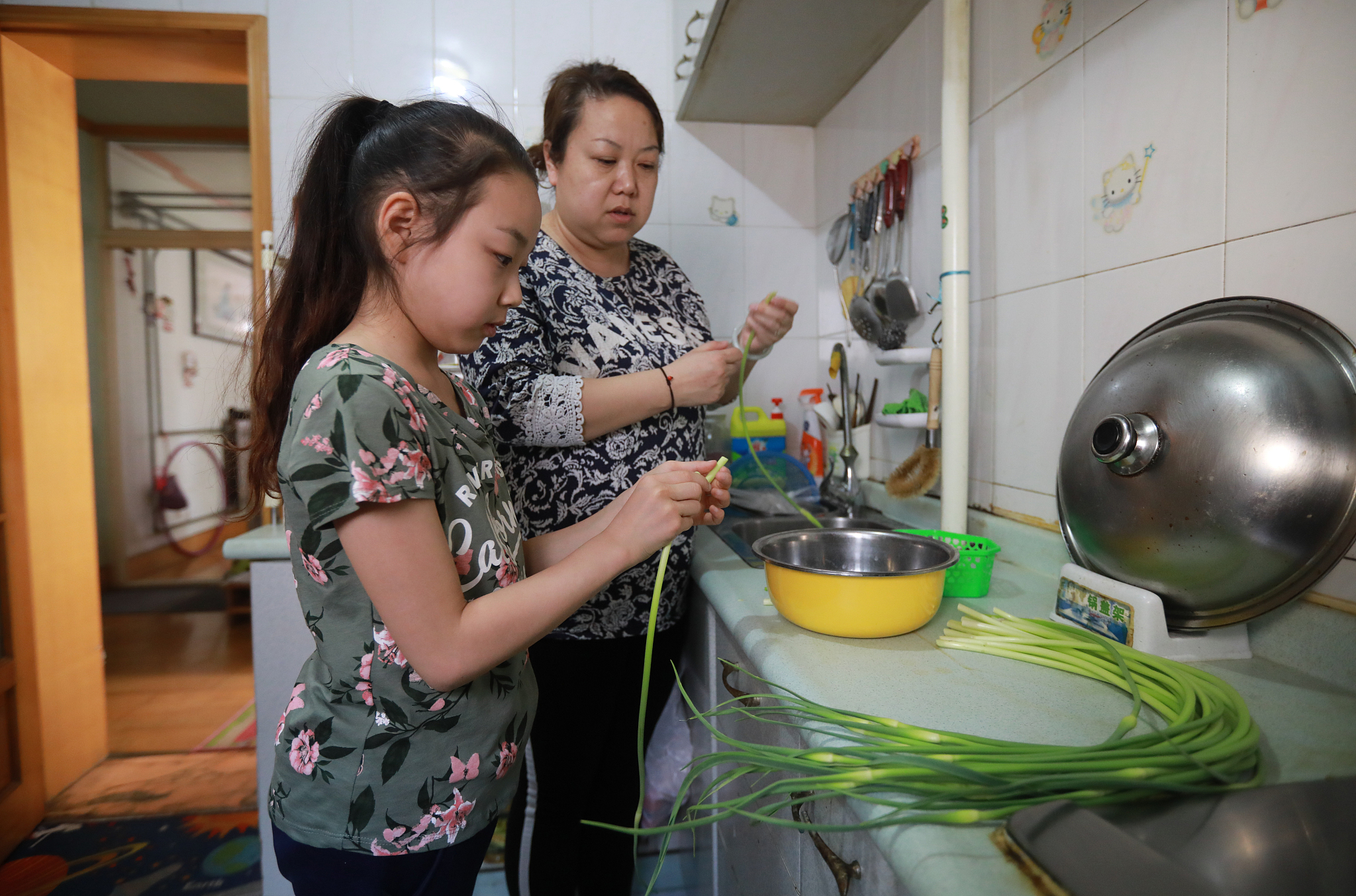A Chinese man has been ordered to pay his wife 50,000 yuan (around $8,000) for years of unpaid housework in a landmark divorce case that has sparked heated debate over the value of women's unpaid domestic labor.
It is the first such verdict made by a Chinese court after the Civil Code came into effect this year. Under the code, the person who takes on more responsibilities in taking care of children, the elderly and other housework at home has the right for the first time to ask for compensation in a divorce case.
Wang, the wife, told the court that during five years of marriage she "looked after the child and managed household chores, while (her husband) Chen did not care about or participate in any other household affairs besides going to work."
The court ruled that Wang had indeed borne more household responsibilities and should receive 50,000 yuan ($7,700) plus sole child custody. The compensation is not part of the joint property shared by the couple.

A mother teaches her daughter how to prepare a meal, in Qingdao City, north China's Shandong Province, March 24, 2020. /CFP
A mother teaches her daughter how to prepare a meal, in Qingdao City, north China's Shandong Province, March 24, 2020. /CFP
Feng Miao, the judge in the case, said that the amount of compensation "is based on the time span of their marriage, the effort Wang put into housework, the husband's income, and the average local cost of living."
Wang had originally requested 160,000 yuan as compensation.
The ruling sparked widespread debate on the Twitter-like platform Weibo, with some applauding the verdict while some strongly disapproving it.
"It's reasonable. She is a stay-at-home mom and definitely bears more responsibility at home. She didn't go out to work and had no income. I think she should be compensated," read one comment.
"She stays at home for the whole family. He goes out to work, also for the family. He works hard and his income is not only used on himself but on the whole family. It doesn't make sense to compensate," read another.
Another netizen suggested that "women should never be stay-at-home wives," because "when you divorce, you are left with nothing whatsoever. 50,000 yuan in housework compensation is bullshit."

Families plant rice seedlings at a scenic spot in Jieyang City, south China's Guangdong Province, April 12, 2020. /CFP
Families plant rice seedlings at a scenic spot in Jieyang City, south China's Guangdong Province, April 12, 2020. /CFP
Long Jun, an associate professor at Tsinghua University, said the provision in the Civil Code aims to protect the one who contributes a lot at home but is more vulnerable. In cases like Wang's, one partner in the marriage often gives up career and educational development to support the family.
"After divorce, the one who spends more time on work can keep making money and enjoy their social resources as well as their positions. But the one who stays at home for years will face difficulties when returning to work," Long said.
"So in the Civil Code, except the part the person can get through dividing shared property, new rules of law were added to provide proper compensation to such people to guarantee their future life."
Other legal experts say the court ruling and the ensuing debate can awaken people's awareness and respect for the value of housework, which is normally undervalued in relation to other work.
According to the data by the Organisation for Economic Co-operation and Development (OECD), Chinese women on average spend 234 minutes (3.9 hours) on unpaid domestic work daily, while men spend 91 minutes (about 1.5 hours) on such work a day.
Time spent in unpaid work includes routine housework, care for household members, child care, adult care, care for non-household members, volunteering, shopping, travel related to household activities and other unpaid activities.

